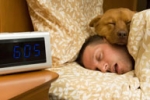torontoCPAPguy wrote:I use an Everflo Q to infuse 4L/M into my S9 Auto's airline to the mask. My Contec 50E recording oximeter was showing my SpO2 dropped substantially below 90% (like down into the 70's) most nights. The result of this is that your autonomic nervous system arouses you in order to breath more deeply. The other result of this and much more dire is that your BP skyrockets while the body attempts to correct oxygen starvation any way it can.... leading to stroke risk.
However, you say your SpO2 is above 90% throughout the night based on a recorded report. I would suggest that you are well oxygenated and do not require supplemental O2 as far as apnea is concerned. My desats always line up with apnea events.
Hi torontoCPAPguy!
The O2 probably does help stablize breathing and help get the O2 level back up after an event. But why is the breathing so unstable in the first place?
Look at the flow data near the events. Are you using a large volume of air?? So then - assuming your lungs work pretty well - your SpO2 levels are up during that phase (I think likely). But - then - you stop breathing and - bamm - the SpO2 levels drop like a rock with JATO assist!!!
My point with the questions about desaturation speed tie into this directly - - if what I describe above is true - that you desaturate quickly (faster than an SpO2 downward change of 2% in 30 seconds -- I would guess you move as fast as 15% in thirty seconds or over seven times as fast) then I think a lot of cells are pre-starved so to speak and then get fed "all at once" draining the blood stream of oxygen and likley producing a lot of CO2 all at once.
I think it is likley that the arousal/awakening occure slightly previous to the apnea and perhaps cause it to be as a restorative event. The heavy breathing proceeding are likely partly due to the released CO2 from all those cells being fed at once, and partly due to the O2 levels being drawn so low at once.
What the extended rebreathing space approach does is to keep the CO2 levels from dropping so low that circulation shuts down and oxygen transport is frustrated. So the cells remain fed and perhaps the O2 sensors keep from going hyper and creating a false demand for air that you really do not need. In Europe, I have heard, they are experimenting with supplemental CO2 to do the same thing.
The only answers in use for this in the U.S. that I am aware of are supplemental O2, extended rebreathing space, and our highest technology PAPs.
In terms of lifestyle things that I believe would help:
1. Reduce Stress (I have found this to be the most effective strategy dealing with all Sleep Apnea Issues in terms of lifestyle).
2. As much as practical, incorporate exercise. Aerobics, and after some training with aerobics interval training. I think these exercise the breathing reflexes and help some of the sensors work better and make nighttime breathing more stable. This I say watching my own data and doing the exercise regularly. You do need to start slow under a doctors care. My starting goal was to do my 10,000 steps a day (still a goal - up to 75% in the summer) - adding interval training when I arrived in my new digs and now bicycleing now needing to make it to a town six miles away. I note the positive effects after I do the exercise and cumulateive in my data numbers (and needing a new belt recently since the old one became too big!!).
3. Stay away from violent media. No "ID TV" for Todzo in spite of my victim of violent crime status (nice to see an incident worked out in an hour indeed!). I think we need to live life more real and that violent media stimulates my already over stimulated nervous system which would tend me toward more unstable breathing at night since nerves, I have observed in my data, do seem to do that. I do not have TV in my new digs and probably never will.
4. Less carbs near bedtime,
5. Anti-inflammitory and anti-oxidant foods.
6. Optimal Breathing training using a pulse oximeter to find the lowest heart rate keeping exercion constant by controlling breathing.
I hope we find good answers to this soon.
Todzo










